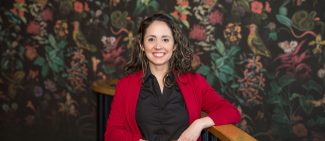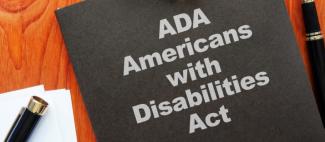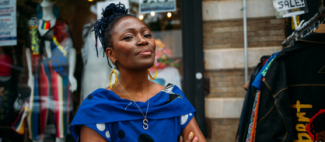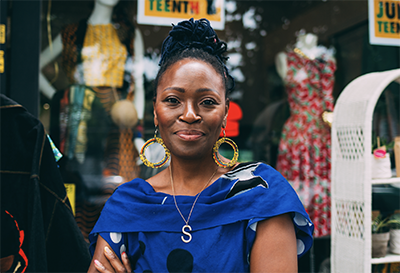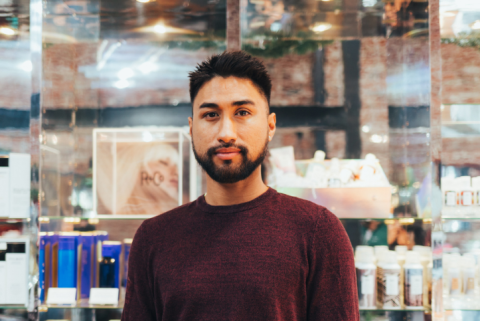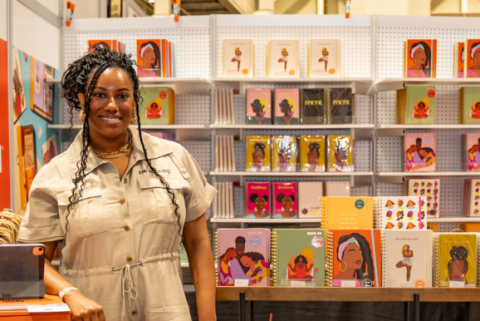Start Small Think Big provides free legal, finance, and marketing support and resources to small business owners nationwide; we’re intentionally focused on serving small business owners from marginalized communities. The last couple of years have reminded us of just how critical it is to center equity, especially racial equity, across all of our work. Our goal is to create opportunities for small business owners to succeed while prioritizing those most impacted by structural inequities.
In November, we hosted an Ask An Entrepreneur Panel: Spotlight on Racial Equity and Community Change — our first equity-focused dialogue with our small business community members. Ellie Stephens, Start Small Think Big’s Client Relationship Director and Hana Kamal, Start Small Think Big’s Director of Equity and Inclusion, partnered with three small business owners to facilitate the much-needed conversation.
The panelists included:
- Simone Gables (they/she)- founder of OAAARS, a people of color-led consulting agency that provides social-justice-centered training to create safer and more inclusive work environments.
- Kaybee Beach (she/her) - founder of Kaybee Village, a business that provides holistic support for new parents, including birth and postpartum doulas, night nurses, newborn care specialists, and more.
- Vaughn Dabney (him/he)- founder of Unoma Haus, a company that builds high-quality, off-grid van conversions for people who desire nomadic lifestyles and the freedom to travel.
If you couldn’t attend the event, we invite you to check out the recording and experience the impactful conversation for yourself. All three of these small business owners have incorporated equity into their business foundation, practices, and purpose, with the shared goal of creating a positive impact on the communities they support.
Here are a three overarching themes from the discussion that we think are worth remembering:
1. COMMUNITY
There is power in the collective. The panelists discussed what community means to them and how it shows up in their small businesses.
- “For me living in New York and seeing gentrification, I am reimagining the definition of community—it’s not just people living together. When I think about community, I am thinking about how are we relating to each other? Are we having any discourse? Community is where we are communicating and looking out for each other, where we are working together, filling in those systemic structures that are lacking,” Simone shared. “Community means how we are working in tandem with each other. Communities of color do that supernaturally.”
2. TRANSFORM
Change requires us to speak out and mobilize support. The panelists shared that talking about race discrimination head-on is necessary for change.
- Black business owners are tasked with shifting the narrative and challenging internalized oppression. “Black women were doulas centuries ago, and then they were midwives before it became a thing. Then all of a sudden, they were villainized, called unsanitary. Then, all Black midwives went away, and now you have more white midwives in this country than Black midwives—something that is ancestral to what Black women did anyway. After they villainized our practices, more white women are doing it,” Kaybee said. “But now the power shifts come into play in the hospital when a white doula comes into the hospital to support a parent, the doctors and parents do not give them much of a hassle because the assumption is that white is right. So how do we change that now? By speaking out on the things, we are seeing. The way to shift the narrative is to talk about it.”
3. HOPE
Hope is essential for human well-being and a catalyst for opportunity. The panelists provided insights for other small business owners on how to inspire hope in their work.
- “If you haven’t started your business yet, define part of your mission in terms of helping your community,” Vaughn advised. “If you already have a business circle back and if you don’t have that mission, try to integrate that mission into your business. You don’t have to necessarily worry about the impact of hope because if you are doing something positive, it is going to show up in people.” Hope is underrated,” he added. “When communities don’t have hope, it’s detrimental. You don’t see outside of where you are, and that has been systematically suppressed. Part of my mission is to bring hope and reinforce hope and help our communities redefine homes. If you look back in American history, traditional houses were denied to Black people back in the day-redlining and restricting access to better school systems. So how can I play a part in redefining what home means that doesn’t rely on a geographical location or demographic. “
As we head into 2022, Start Small Think Big plans to continue hosting community events and creating spaces for conversations that matter to the small businesses we work with. Stay connected and follow us on social and RSVP for our upcoming events here.
